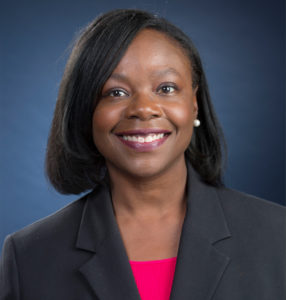‘Everyone Has to Be an Entrepreneurial Leader’

The world needs entrepreneurs. It needs entrepreneurial leaders, too.
“Not everyone will be an entrepreneur, but we believe everyone has to be an entrepreneurial leader,” said Donna Levin, CEO of The Arthur M. Blank School for Entrepreneurial Leadership at Babson College. “We need people taking a look at challenges and seeing opportunities, who are listening and responding to the needs of their communities and their customers. People who have the skills, grit, and determination to make that happen and make it happen in a way that is human centric, and equitable for all.”

Donna Levin, CEO, The Arthur M. Blank School for Entrepreneurial Leadership
Levin’s description of the distinction between entrepreneurs and entrepreneurial leaders served as an inspirational kickoff to Babson’s Global Entrepreneurial Leadership Week (GELW), a series of virtual events, discussions, and initiatives focused on values, action, and impact.
Levin joined a panel with President Stephen Spinelli Jr. MBA’92, PhD and Scott Taylor, the inaugural Arthur M. Blank Endowed Chair for Values-Based Leadership at The Blank School, and moderated by Debi Kleiman, executive director of the Blank Center, as the group kicked off the first GELW with a conversation exploring entrepreneurial leadership and Babson’s opportunity to disrupt the status quo.
Defining Entrepreneurial Leadership
What differentiates an entrepreneur from an entrepreneurial leader? At the core, Spinelli said, the two are the same—with some caveats.
“The word entrepreneur has been so associated with startup, and the person, that we use a specific word: entrepreneur,” he said. “In entrepreneurial leadership, all the same skills are required, but they are applied across a broader spectrum.”
Organizations and communities need both entrepreneurs and entrepreneurial leaders to thrive. Challenging times such as the coronavirus pandemic have made that need clear.
“We need leaders in different and diverse roles to examine problems, find solutions, bring people together and create value,” Spinelli said.

Scott Taylor, the Arthur M. Blank Endowed Chair for Values-Based Leadership at The Blank School
With the launch of The Blank School, Babson is building the definition of entrepreneurial leadership. And, values—both value creation and being a values-driven leader—are fundamental to that work, Taylor said.
“The research is clear: When leaders are clear on what their individual values are, they have an internal clarity that allows them to be inward directed by those values,” he said, citing Arthur M. Blank ’63, H’98 as a model example of values-driven leadership in action. For the Blank Family of Businesses, he said, “values aren’t just totems that sit on the wall. They are living, breathing, influential principles that guide decision making, especially in times when it’s most difficult in terms of vulnerability or complexity.”
Blank’s new best-selling book, Good Company, will serve as a blueprint for Babson’s own integration of values-based leadership into the learner experience.
Entrepreneurial Leadership in Action
The coronavirus pandemic has accelerated the pace of change in many industries, including higher education. Babson, Spinelli said, has risen to the challenge.
From transferring more than 600 courses online in a matter of 12 days, to reimagining the first-year student experience to become multimodal, to equipping more classrooms with hybrid-enabled technology, the Babson community has come together to show what entrepreneurial leadership looks like in action.
“We are accelerating so fast. By making these changes, we are advancing the institution by a decade,” Spinelli said. “To have the community come together in that way is astonishing.”
Babson’s approach to the coronavirus response, Taylor said, is a prime example of values-based leadership in action, too.
“At Babson, we’ve seen a consistent messaging and set of values that have driven what we’ve tried to do as a college in this era of pandemic. That’s what entrepreneurial leaders do,” he said.
No matter what industry or profession you’re in, Levin said, entrepreneurial leaders should use this moment to take action.
“There are a lot of challenges in the world right now, and a lot of opportunities to create positive change,” the Blank School CEO said. “Pick one thing that you can focus on right now to have an impact, then figure out what you can do.”



